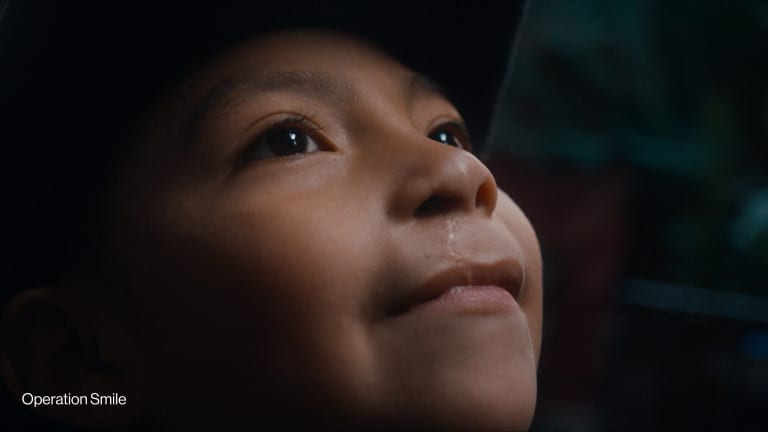It is a question overseas travelers and aid workers would not want to ask themselves: Should I be honest to my family about everything that happens here?
While you want your family to know at all times you are safe and that there is nothing to be gained from their worrying, they also want to know everything that goes on. Sometimes these two are not compatible, and six months into our Zambian adventure, Betty and I had to face this dilemma.
To save any drama, and knowing that my parents are reading this, I'd like to say we are safe and have probably never been in any position of real danger. However, this reassurance has only come with reflection, and we certainly did not feel safe during the incident that happened a few weeks ago while visiting Lusaka.
We, with a group of five friends, were attacked by a gang of pickpockets outside a Bob Marley concert on the outskirts of Lusaka. As we approached the entry gate of the concert venue, we realized that we were being surrounded by a large group of people who were quietly pushing between us and pushing their hands into our pockets. Deciding that we no longer wanted to go to the concert for fear of what might be on the other side of the wall, we turned around and started to make our way back toward the road, shouting and slapping at any stray hands.
For a moment, the group separated, and it seemed like we had been allowed to leave. As we got to the road however, the pickpockets – in groups of three or four – returned, this time without any attempt at subtlety. It is also at this point that my mind goes into overdrive.
It seemed that some of my friends were surrounded by aggressive shadows that were tearing at their pockets. There was a blur of shouting; I realized that in the struggle, one friend had been knocked to the floor, scattering the robbers. There was more screaming. Then I saw a female friend with four men around her. Without thinking, I ran up to them and started pulling them away from her. Somewhere at this point, I thought this might be dangerous, and as I tugged at their hands, I started screaming for help; it seemed to do the trick. They shadowy figures began to melt away as I pulled at them, and the assailants started to run. As they did, one grabbed at Betty's bag – who, until this time, had somehow managed to stay away from the action – pulling her to the floor. She is tough though, and had already wrapped it around herself. They did not stop running to try again.
At this point, a car appeared, and my friends were all inside. One member of our group had managed to flag down the startled driver, and before he had said anything, they had all jumped in. Thankfully, he agreed to drive us back to our friend's house, for which he was quite generously reimbursed.
After a quick check, we realized no one had been seriously injured and that only two of us had lost some money, totaling about $40, and another one had lost a phone.
As we started trying to make sense of what had just happened, it became clear that three people, at different points, had been knocked to the ground, and one girl had had her trouser pocket ripped off, which had enabled them to steal her phone.
So should I tell this to my family and my colleagues? Should I tell this to VSO?
As I have explained in a previous blog, my ability to lie, although improving, is still shockingly bad. If I do not tell my family now, then it will probably still come out at some point in the future, meaning my family will worry at all times that I am in desperate danger. This is not necessary. I am not a brave person but I am normally as far away from danger as possible.
Furthermore, I believe it is important to talk to people, particularly friends and family, about these things. It was a frightening and emotionally draining event. Even in the safe refuge of our friend's flat, we could still feel the muggers hands all over us, the lingering sense of poverty tugging at our trousers. One of the best ways we can get over the incident is to talk about it. Burying it can store up big troubles for the future and make it unlikely that we will learn from our mistakes.
Such learning is inevitable, and both Betty and I feel changed by the event. It is hard to say how permanent the changes will be, but we both feel less confident about using public transport and less enthusiastic to get back into the rough and tumble of Zambian life. If this continues for some time, it may well affect our work performance, and so therefore, it would probably be a good idea to talk to our employers about the incident, in the hope they might be able to understand why we might not be our normal selves for a few days.
It is also advisable that we pass this information to the organization we are working with, VSO, so as to be able to advise future volunteers.
These are all good reasons to share our story. However, as we took refuge in the safety of our friend's flat and sought the warm reassurance of a cup of tea, one of the first things that was said was, "I am not telling my parents about this."
Another said, "Yeah, this is one we won't be putting on the blog."
All our initial reactions are to bury this story. There is no reason to make others worry about something that already happened. There seems to be something almost self-indulgent about talking about it outside our group.
Yet as we do talk about it, analyze it and learn how best to avoid such a scenario in the future, it seems to me that this learning should be shared with others. Furthermore, a calm analysis of what happened made me realize that this was a particularly Zambian mugging, which should actually reassure our loved ones that Zambia is a relatively safe place for us to be in.
Firstly, the mugging was almost apologetic. Without saying anything, the pickpockets pawed over us in a nonviolent manner. They did not demand money, which, if they had done so, we probably would have given to them. There were no punches or kicks, no knives or guns. In some Western cities, violence would probably have been used during such an incident. In Zambia, there was no such threat.
Secondly, the mugging was not particularly successful. Had violence been used then they could have taken about $200, seven mobile phones and a camera.
We made mistakes, and we will learn from that. We should have gone with a big group of Zambians. We did go with two, but they were not close friends and so were not with us when it happened. We also probably should have gone into the venue as it would have been safer than outside. Finally, we should have heeded the advice of one Zambian who said that Bob Marley concerts attract an unruly crowd. In view of this, we just have to accept that we cannot do all the things we want to do or do back home. A white skin attracts unwanted attention no matter how much we want to believe in equality or want to see the "real" Zambia.
While there are many different scenarios – and I am sure others on this Web site have suffered far more frightening encounters than this – I believe it is better in most cases to be honest with yourself and your friends and family about all the experiences you've had abroad, and put them into context with experiences that you could have at home. It is then that you can all learn from them, understand them and try to make sure that the good experiences outweigh the bad.








